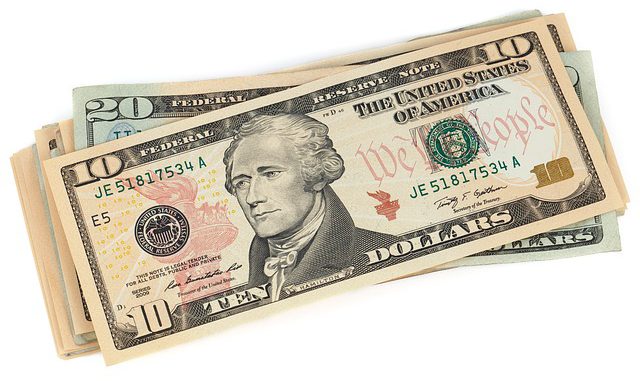
How to Collect and Invest In One Dollar Bills Using Serial Numbers
By Harrington A Lackey
A one dollar bill may not seem like a lot of money, but some are rare and can become part of an investment. The key to knowing if a dollar bill is worth more than face value is to examine the serial number. Serial numbers are a combination of a letter, eight numbers and another letter at the end. You can find them easily because they are printed in green and are located twice on each bill. One is close to the bottom left of George Washington’s portrait and the other is located at the top right of his portrait. Combinations of serial numbers are keys to determining the rarity and investment value of a bill.
The first letter runs from “A” to “L”. These 12 letters are codes for the cities where they were printed. The last letter indicates the number of times that the Bureau of Engraving and Printing used the sequence of serial numbers. So, “A” means that the serial number has run only one time. “B” indicates a second time and “C” is the third. The number of letters goes through the 26-letter alphabet.
Between the letters are eight numbers representing how many one dollar bills were printed in one year. The first one printed will be “00000001”. The last is “32000000”. The lower or higher the numbers, the more they’re worth as investments. For example, a bill with a low number like 00000095, or one with a high number 32000022 can fetch between $25 to $100.
Also, a specific combination of numbers can add value. If you have only two numbers in the set, like “2” and “4”, such as 22424442. This number is worth a little more than face value. But, if you have a repeating pattern, like, 24242424, or 24224224, your investment just increased by about $1,000. This special combo is called a “binary bill.”
You might also get a set using three numbers, such as “2”, “4”, and “7”, you can have them in no special order, such as:27244727, or 59577975 Of course, if they follow a repeating order, they are worth more. You must know that a two number combination will be more valuable than the three number combination. These are called “trinary bills,” which could only fetch $3 or $5.
Another type is called a “ladder,” which is a direct count from 1 to 8: 12345678 or, backwards: 87654321.
A “radar” bill reads the same numbers backwards and forwards, like a mirror: 14622641. A “super radar” bill only includes two numbers, with the same one only at the beginning and end: 59999995. Radars can fetch about $25, while super radars might be worth about $70.
Two or more separate bills with consecutive serial numbers, like 25348793 and 25348794, are two bills printed one after the other.
“Doubles” occur when you have two of the same numbers: 33774499. A “double quad” is two sets of four of the same number: 33335555. Even a bill with one number repeated eight times: 44444444 might bring $500.
You can also find a “star note.” If you see a star at the end of a serial number, it means that it’s a replacement bill for one with the same serial number that was damaged.
Special combinations of serial numbers from one dollar bills vary in value, from just a few dollars to a few thousand. My advice is to go to your bank and ask for a one-dollar “strap” which is a pack of 100 one dollar bills. Go through them and see what patterns of serial numbers you can find. Sometimes, a fresh new pack of one dollar bills will come to a bank straight from the Bureau of Engraving and Printing. So you might have a good chance of finding consecutive bills, which could possibly earn you a few more dollars if you sold them to a collector. Just remember that any bill with a special serial number is a rare item. Now, you have a good reason to check the dollar bills in your pocket or purse.
Article Source: http://EzineArticles.com/expert/Harrington_A_Lackey/1594833
![]() On eBay UK:
On eBay UK:
![]() On eBay USA:
On eBay USA:








